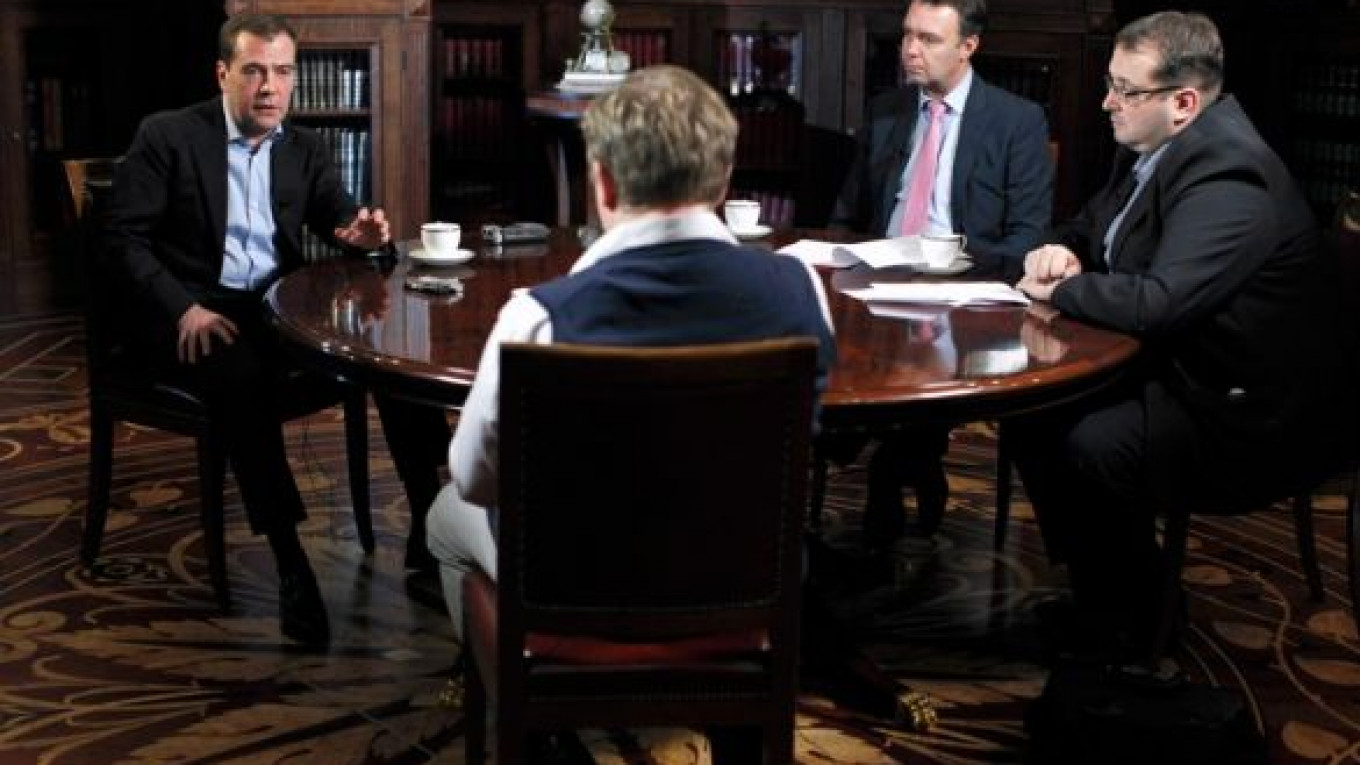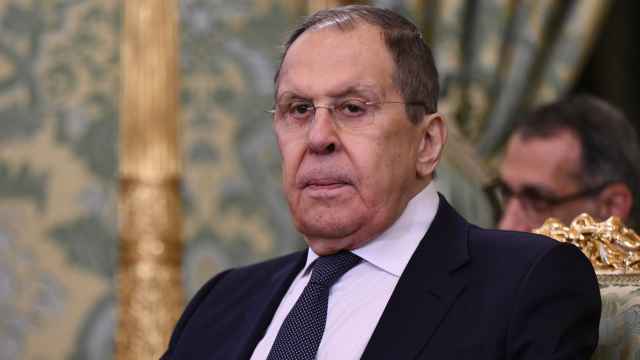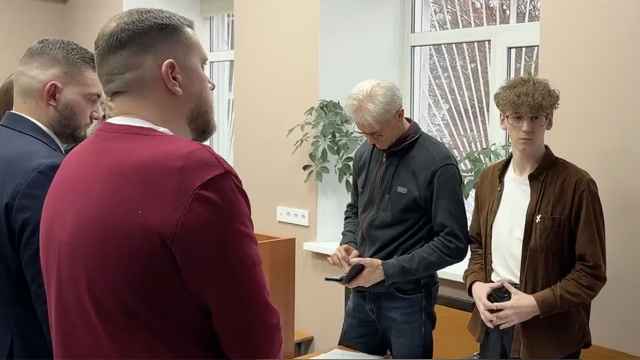Saying the "repressive" label given to new laws on treason and other civil issues is "a pure political tactic," Prime Minister Dmitry Medvedev voiced support for the State Duma's reinstatement of criminal charges for libel, which overturned one of the initiatives of his presidency.
In a wide-ranging interview published in Kommersant on Thursday, Medvedev said that while "you shouldn't put people in prison for libel," he agrees with the "new legal construction" that paints libel as "an activity dangerous to society."
Fielding a question about the laws enacted by the State Duma beginning in the spring and particularly since Vladimir Putin's presidential inauguration, Medvedev replied that "these expectations of repression are a pure political tactic."
In addition to libel, the new laws tighten restrictions and increase penalties for treason, unsanctioned protests and Internet content deemed illicit by government agencies. The Duma also passed legislation forcing nongovernmental organizations that receive foreign funding to declare themselves "foreign agents."
Medvedev did warn, however, that those people advocating a reprisal of 1930s tactics — a group that includes both older citizens and youth, he said — fail to grasp the reach of such measures.
"I repeat my position: The majority of people who extol those times absolutely can't imagine what happened," he said, referring to the Great Terror. "It's very easy to extol tyranny when you know that they aren't coming for you at night, aren't shooting you without a trial and investigation, won't put you in jail for 25 years on a false accusation."
Alluding to the giant demonstrations in December 2011 against election fraud in that month's State Duma contests, Medvedev said "the fact that society's demands grew during the elections in 2011 is proof of the maturation of our civil society."
In the 8,000-word interview with the business daily, Medvedev also discussed the recent ousters of Defense Minister Anatoly Serdyukov and Regional Development Minister Oleg Govorun.
"A person in a public position — the position of a minister — has to understand that he is the object of attention and criticism, including from the president or the head of government," the prime minister said. "And he must deal with this more calmly."
A Message from The Moscow Times:
Dear readers,
We are facing unprecedented challenges. Russia's Prosecutor General's Office has designated The Moscow Times as an "undesirable" organization, criminalizing our work and putting our staff at risk of prosecution. This follows our earlier unjust labeling as a "foreign agent."
These actions are direct attempts to silence independent journalism in Russia. The authorities claim our work "discredits the decisions of the Russian leadership." We see things differently: we strive to provide accurate, unbiased reporting on Russia.
We, the journalists of The Moscow Times, refuse to be silenced. But to continue our work, we need your help.
Your support, no matter how small, makes a world of difference. If you can, please support us monthly starting from just $2. It's quick to set up, and every contribution makes a significant impact.
By supporting The Moscow Times, you're defending open, independent journalism in the face of repression. Thank you for standing with us.
Remind me later.






